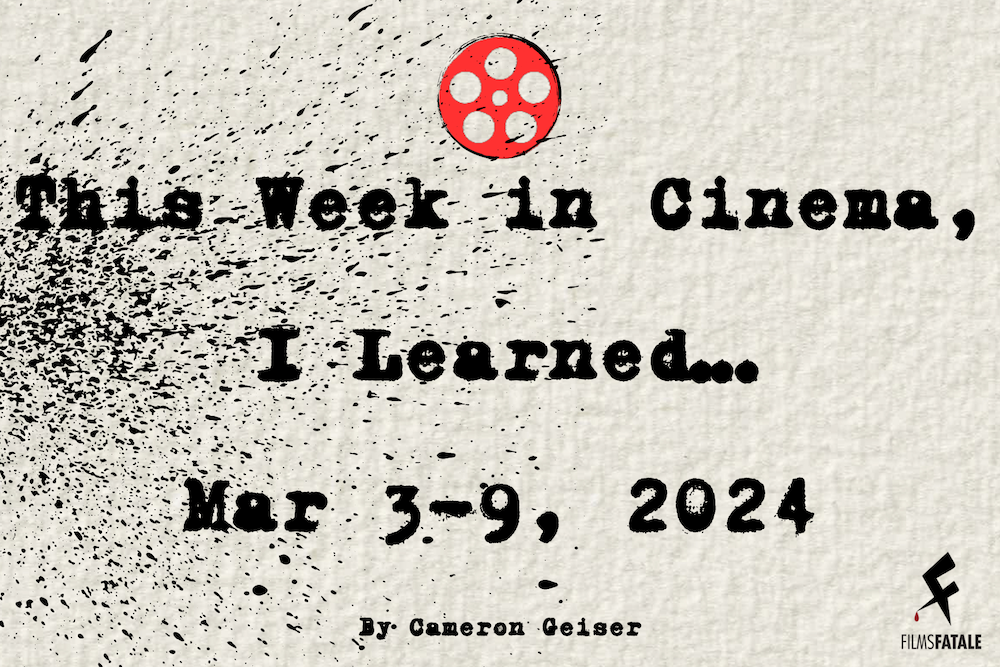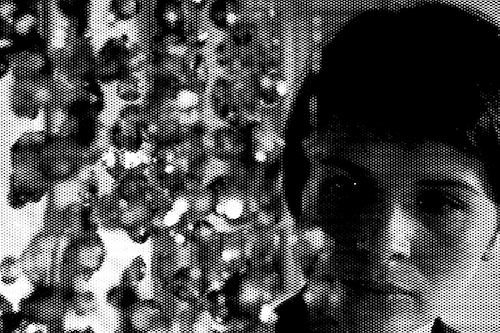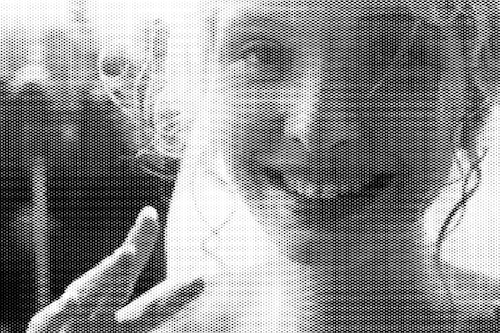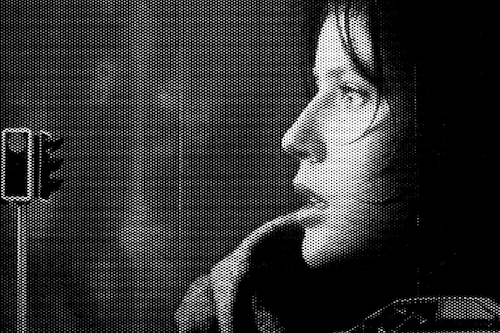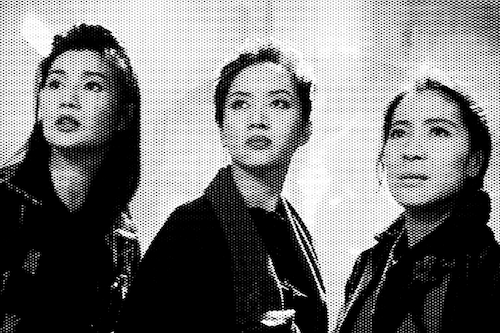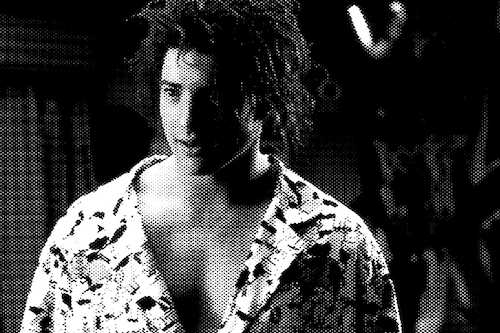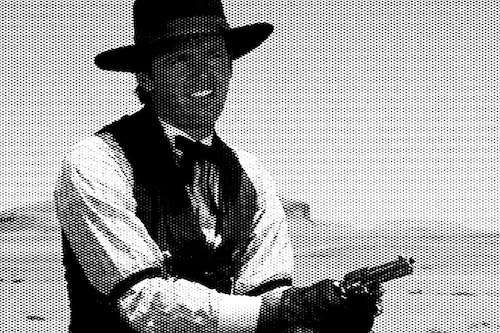This Week in Cinema, I Learned…March 03-09 2024
Written by Cameron Geiser
Welcome to This Week in Cinema, a yearlong film criticism project wherein I will be watching a new film that I haven't seen every single day.
I am overjoyed with this week’s set of films. Well, okay, let's get specific. I adore the majority of this week's films. The first five films are the perfect combination of Arthouse must-see films and insane genre offerings in a pair of Hong Kong flicks that include superheroics and a post-apocalypse-style sequel. The final films are a slacker-ish comedy from the 1990s and a Western starring Jack Nicholson. While the last two films aren't abysmal by any means, they're just… okay. So, as will most likely be the case in March, it's a strange week! While I wasn't all that impressed by Encino Man or The Shooting- they were watchable and good contenders for the category of movie that I call “The Lazy Sunday Afternoon”. There's nothing particularly bad about them overall, but they also won’t impact you in any meaningful way. Now, deeply affecting human dramas sitting right alongside crazy Hong Kong action sequences- that is my kinda jam. Speaking of those human dramas, they were all made by Krzysztof Kieslowski, who is a name I will now keep in mind among the greatest of filmmakers. Even though I had seen these three films in his Three Colors trilogy, I was struck by his way of storytelling, it’s something transcendent. There’s a bit of magic in that trilogy, it’s almost indescribable in the way that the stories unfold, especially when viewed in the correct order, Blue, White, then Red. I’ll dive into more detail for each film below, but if you watch, keep an eye out for cameos and interconnected story beats. A few are over so quickly that if you blink too slowly you’ll miss them!
March 3rd
The Heroic Trio (1993)
3.5/5
As someone who quite enjoys the cinema coming out of Hong Kong for decades, I was delighted to discover The Heroic Trio. While I did not recognize the name Anita Mui, I did know Maggie Cheung and Michelle Yeoh! Little did I know that this film would be one of the most ridiculous, non-stop, action-oriented flicks with a supernatural flair that I have ever seen. The three superheroine characters each have their own motivations and personalities, though much like everything else in this film, their personalities, charm, demeanor, all aspects are heightened in this film's world. Thief Catcher (Maggie Cheung), also known as Chan Chat, is the sassiest of the bunch and while not the main motivator of the story, she prods the plot along through sheer determination- and a shotgun. Tung (Anita Mui), is the wife of the police inspector who's also harboring a secret identity as Wonder Woman (No, not that one), a masked knife-wielding martial arts master and vigilante of justice. The final third of the trio is Ching (Michelle Yeoh) a.k.a. The Invisible Woman.
She's got her own secret identity as an aide to a genius Professor working on an invisibility cloak, which she uses to accomplish her true Master’s grand scheme. Yes, Ching is actually the right hand of the villain until she's persuaded by Chan Chat and Tung to switch sides once their storylines collide. In fact all three share a background where the Evil Master (Shi-Kwan Yen) trained them in martial arts prowess as children, with Ching being the only one to stay and work towards his plan of finding a new Chinese Emperor that he can control from the shadows. The Heroic Trio feels more like a comic book than anything Marvel or DC have made in the last couple of years, and they might consider looking to Hong Kong's cinematic past to exude that sensation once more. With fever-dream pacing and creative setpieces that keep you guessing, this is definitely a new favorite, check it out!
March 4th
Three ColoUrs: Blue (1993)
4.5/5
This is my favorite of the Three Colours trilogy. Blue also begins a new relationship with a poignant voice in cinema for me personally. Roger Ebert called this film the anti-tragedy, White the anti-comedy, with Red being the anti-romance, and I'm inclined to agree with that framing. This story is about Julie (Juliette Binoche), a woman struck by tragedy immediately in the film's beginning. As the wife of a renowned composer, who may have been the writer of his music, and mother- her world is torn asunder when she is the only survivor of a car crash involving all three. The film is more about grief and liberation, or a reinvention of self than it is a tragedy. Tragedy is simply the impetus of the story. After she drags herself out of the depths of sadness Julie takes it upon herself to seek out a man she knew held a candle for her for years, a bit of physical action to kill the numbness if you will. It does nothing for her though and she spends the rest of the film going to great lengths to make a new life for herself. She moves to a new apartment in a derelict part of Paris, one with no families or children, a different world where no one who lives and breathes professional, orchestral, music will find her. Unfortunately for her, Julie is constantly reminded, or haunted rather, by her past. I loved how her husband's music, and his other more secretive activities, were utilized in showcasing how grief washes over you in waves when you least expect it. As with each of the Three Colours films, I will have to rewatch them to better understand how the narrative itself ties to choices in the edit and cinematography specifically. Blue is truly a great film, but it can be emotionally wrenching at times. I implore you to give it a watch though, it is worth your time.
March 5th
Three ColoUrs: White (1994)
4/5
The middle film in the Three Colours trilogy, while being my least favorite of the three, is also the one I intend to rewatch first. I had to do some reading during my watch of this trilogy of films because they are very much products of the time and place/s that they were made in. The trilogy is a representation of the three colors of the French flag and the ideals of the French Revolution, liberty, equality, and fraternity. Krzysztof Kieslowski, however, was Polish. Europe was in a time of transition as the European Union was adding several countries, with Poland in the beginnings of that process and coming into the fold in 1994. Thus I did not immediately pick up on the bit of satire in the second half of this film when Karol Karol (Zbigniew Zamachowski) plots his revenge on his ex-wife through his ability to transform into a capitalist shark now that Poland is going to be part of the West. The fact that his French wife divorces him due to his inability to give her the sexual gratification she demands and lords her wealth and political power (laws in France at the time gave her more weight in the courts as a French Citizen versus Karol as a Polish immigrant) over him in complete humiliation- the Macro representations of people standing in as nations makes more sense plot-wise.
The equality at the core of the film, in a dark sort of twist, is that Karol finds a way to be just as conniving as his wife was to him in the beginning of the film through a long plotted revenge that we’re not keyed into all the details of. However, the strongest portion of the film was in the friendship between Karol and Mikolaj (Janusz Gajos), a similarly melancholic Pole who recognized an old tune familiar in Poland when Karol played it at his lowest point in the Paris Metro. Later, when Mikolaj asks Karol to kill him, and Karol abides by his friend's wish by firing a blank into his heart first, to see if he truly wants to die- he saves a man's life by doing so. The euphoria of the following scene with the two running on a frozen river with a bottle of wine in hand, laughing to their hearts' content. That, dear friends, is the magic of cinema.
March 6th
Three Colors: Red (1994)
4.5/5
As the anti-romance of the trilogy, Red felt incredibly similar in tone to Wong Kar Wai’s In The Mood For Love. Which, if you know the film, is always a good time. That sensation of two characters connecting on some rare, almost spiritual level and yet never truly linking in any meaningful way. That phenomenon is very much at the core of this film. Valentine (Irène Jacob) is a model who accidentally hits a dog with her car one night and out of the guilt and shame of the act, seeks out the owner. When she finds the old man, Joseph Kern (Jean-Louis Trintignant), he dismisses the fate of the dog (who survived by the way!) nonchalantly, it is of little importance to him. The cantankerous curmudgeon is more interested in spying on his neighbors’ phone conversations through FM radio, which in turn disgusts Valentine who boldly tells him so. When she returns to bring the healed dog home they talk some more, she learns that he's a retired judge with a lonesome love story at his core, and he learns that she's a model with a controlling boyfriend who lives abroad and an errant brother afflicted with drug problems. However, what I found to be truly compelling is the cosmic repetition that Kieslowski employs in another relationship that mirrors aspects of both Valentine's and Kern's love lives. I also quite enjoyed the shipwreck scene at the end that allowed cameos from all of the principal characters from all three films to be in the same place, at the same time, and that they all survive to live another day. Fate and chance play into the film's tone and narrative, and it is the one film of the trilogy that suggests that reality may not entirely be what it seems, and I loved that.
March 7th
Executioners (1993)
3.5/5
As a sequel to The Heroic Trio, which was released in the same year no less, Executioners is a darker, but just as violent sequel that takes wild creative risks. As this was the fourth film that Johnnie To released/worked on in 1993, I can forgive the slower pace and the fact that the story isn't quite as tight as The Heroic Trio. However, it maintains the same score as the film is unique as a sequel in that its setting and tone are vastly different overall, but similar enough to see the two as part of a whole. Set in a post-apocalyptic version of Hong Kong where people survive by scavenging for clean water, the three principal heroines each have their own ongoing storylines as the first film did, but eventually, they all work together again to thwart a power-hungry masked villain who claims to hold the secret location of safe drinking water. He's also attempting a Coup d'état with one of the Military Colonels against the President- there's a lot going on with this one. One thing I appreciated is that this film focused on further defining the three leads as each of them deals with the consequences of their actions in the first film. Chan Chat is still motivated by money but eventually does the right thing as she becomes more intuitive and less reactionary. Tung is driven by love. She's a mother now and thus has retired the moniker of Wonder Woman as she tries to do right by her family. Ching, fueled by honor, is attempting to atone for her villainous past and works with the now disfigured side villain from the first film, Anthony Wong, who also stars as the main villain of this film.
March 8th
Encino Man (1992)
2.5/5
Not typically one to knock the stoner comedy, or perhaps the slacker comedy is more appropriate here, but Encino Man wasn’t one of the better ones if I’m being honest. It’s not an awful movie, and I almost feel bad scoring this one as low as I do, but it never grabbed me in the way Bill and Ted’s Excellent Adventure, Clerks, or even Wayne’s World did. Maybe it’s because the core concept never truly connected either? Sure Dave (Sean Astin) and Stoney (Pauly Shore) dig a Cave-Man out of the dirt and find him alive, but Dave’s plan to exploit the aptly named *missing* Link (Brendan Fraser) for social clout, kinda falls flat. At least in terms of logic involved with the concept, in the film it eventually does provide dividends socially. However, aside from the occasional chuckle at 1990s Pauly Shore-isms (“Wheezin The Juice” admittedly does produce a smile on my face), Encino Man was a passable slacker flick, but there are stronger options out there if you find yourself in need.
March 9th
The Shooting (1966)
2.5/5
Jack Nicholson? In a Western? That was all I needed to put this one on the list. While Nicholson’s character was a treat, The Shooting is a mostly by-the-numbers, predictable Western with just enough of a mystery to keep the intrigue going. Jack Nicholson’s Billy Sharp doesn’t arrive until about forty minutes into the picture though, so until then we follow Willett Gashade (Warren Oates) and Coley (Will Hutchins), two cowboys perched out at a mine’s entrance. Once Willett returns to the mine, Coley- frightened to bits - fires upon him, not initially recognizing his friend. Coley had recently witnessed a mutual friend getting killed by an unknown gunman and he was still a bit shaky. The following morning a mysterious woman (Millie Perkins) arrives at their camp seeking a guide, and due to the big payout she promises, they agree even though she is unwilling to hand out details. Eventually her man on the outside, Sharp, makes his presence known, and the film does raise a bit in quality due to Ni,cholson’s somewhat unpredictable performance as the gunslinger with an itchy trigger finger. Unfortunately, while Oates dutifully maintains the stoic cowboy trope, he’s just not that interesting. Hutchins as Coley on the other hand is similarly bland, except that his character is a chatty idiot that grates the ears. Millie Perkins has moments where it seems like she threatens to be a presence onscreen, but it never truly amounts to much. It’s a passable flick, but ultimately there are much better Westerns out there.
Cameron Geiser is an avid consumer of films and books about filmmakers. He'll watch any film at least once, and can usually be spotted at the annual Traverse City Film Festival in Northern Michigan. He also writes about film over at www.spacecortezwrites.com.

